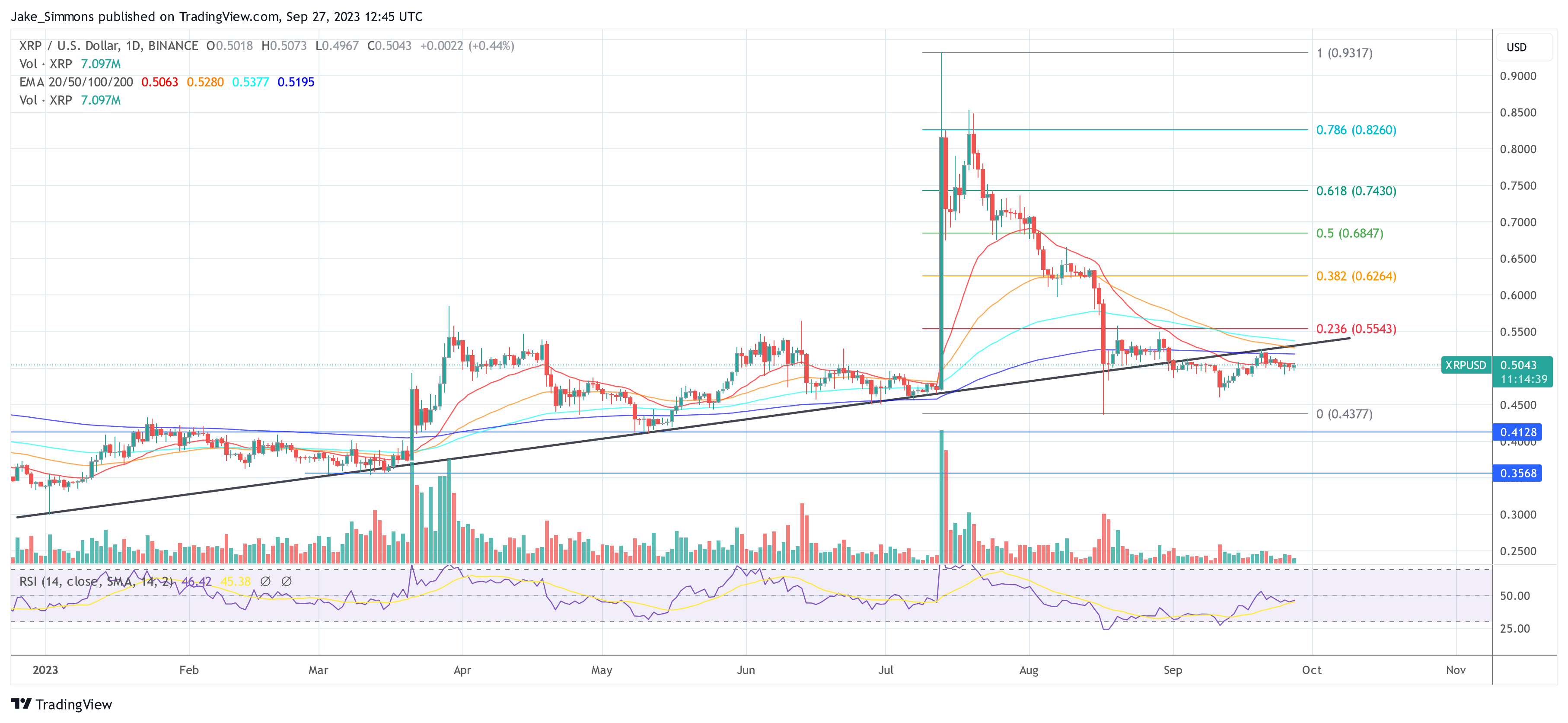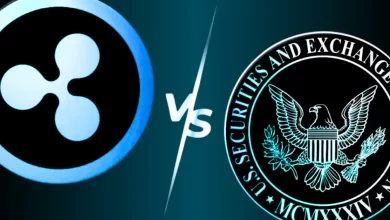Ripple Explains Why Enterprises Seek Its Solutions Amid Economic Uncertainty

Global businesses are confronting significant headwinds as cross-border payment volumes have rebounded to pre-pandemic levels while grappling with the looming challenges of escalating interest rates. Amidst these complexities, Ripple Labs’ latest insights into the shifting economic landscape reveal their crypto-enabled payment solutions as a countermeasure.
Major Pain Points In The Economic Landscape
In their recent exploration, Ripple delved deep into the repercussions of rising interest rates, focusing on their impact on both banks and global enterprises. The 2023 New Value Report states that “nearly half of enterprise respondents cited high-interest rates as a top challenge for cross-border payments.”
With a diverse global impact, interest rate variations can pressure businesses irrespective of their geographical base.
Three crucial pain points for businesses in the current economic environment include. First, there are currency fluctuations that impair growth. According to Ripple, one cannot ignore the intertwined relationship of cross-border payments and local currency conversions.
Ripple’s report emphasizes how interest rate increments can propel the “odds of pricing instability” and compound the unpredictability of international transaction costs. They noted the potential for greater losses, asserting, “this potential for greater losses can deter investment activity and economic growth.”
Second, the fintech company highlights the worldwide costly credit and reduced liquidity situation. A 2022 C2FO survey highlighted in Ripple’s discourse underscored that a bank’s line of credit or term loan remains the predominant source of working capital for most enterprises.
This liquidity underpins the efficiency of cross-border transactions. But there’s an alarming note of caution: “as interest rates rise, so does the cost of borrowing, resulting in reduced overall liquidity in the financial system and higher cross-border transaction expenses.”
Third, Ripple addresses uneven access to financial services. Regional disparities in interest rates can inherently lead to access inequalities in essential financial services like cross-border payments, especially for burgeoning businesses or those in developing economies.
Ripple pointed out the pressing challenges businesses face in regions with elevated interest rates, often stunting their ability to partake in international trade or market exploration.
Advantages Of Ripple Payment Solutions
Given the aforementioned challenges, Ripple is propelling the narrative that blockchain could emerge as a par excellence for reliable, efficient, and globally accessible payments.
Their rationale? Deciphering and debunking common crypto myths and harnessing the potential of “blockchain-enabled payments” could empower businesses to counterbalance the liquidity impediments fostered by swelling interest rates. This extends to a gamut of payments: from global treasury payments to supplier settlements.
Ripple advocates for its crypto-enabled payment solutions, highlighting the key features: “With Ripple Payments, customers can access greater working capital with reduced pre-funding requirements, upfront pricing and no hidden fees.” Such solutions promise to settle transactions in seconds at an almost non-existent failure rate.
Furthermore, the versatility of Ripple’s solutions manifests not just in cost-cutting and augmenting efficiency but also in paving pathways for business expansion. A compelling claim made by Ripple is the potential for businesses to “tap a payout network that represents more than 90% of the foreign exchange market,” making it easier for enterprises to venture into new payment corridors, even those deemed challenging.
Given the robust growth of the gig economy – with a forecasted disbursement reaching a staggering $298 billion in 2023 and a freelance workforce of 915 million – the importance of micro-payouts and geographical reach becomes even more pronounced. Ripple’s solutions, as posited by them, can address the burgeoning demand for efficient, high-volume, smaller payments, potentially allowing companies to gain a stronger foothold in international markets.
In conclusion, for businesses sailing through the choppy waters of economic uncertainties and looking to attain sustainable growth, Ripple’s crypto-enabled solutions might offer the bridge to success. A promise of a “white-glove service, single API integration, and dedicated customer support partners” seems to resonate as a beacon for businesses, even those with minimal exposure to the world of crypto.
The company’s Liquidity Hub is such a solution. Just recently, Ripple has expanded this offering to enhance the user experience, diversify its asset offering, and expand its global reach.
At press time, XRP traded at $0.5043, up 0.74% in the last 24 hours.

Featured image from Shutterstock, chart from TradingView.com





